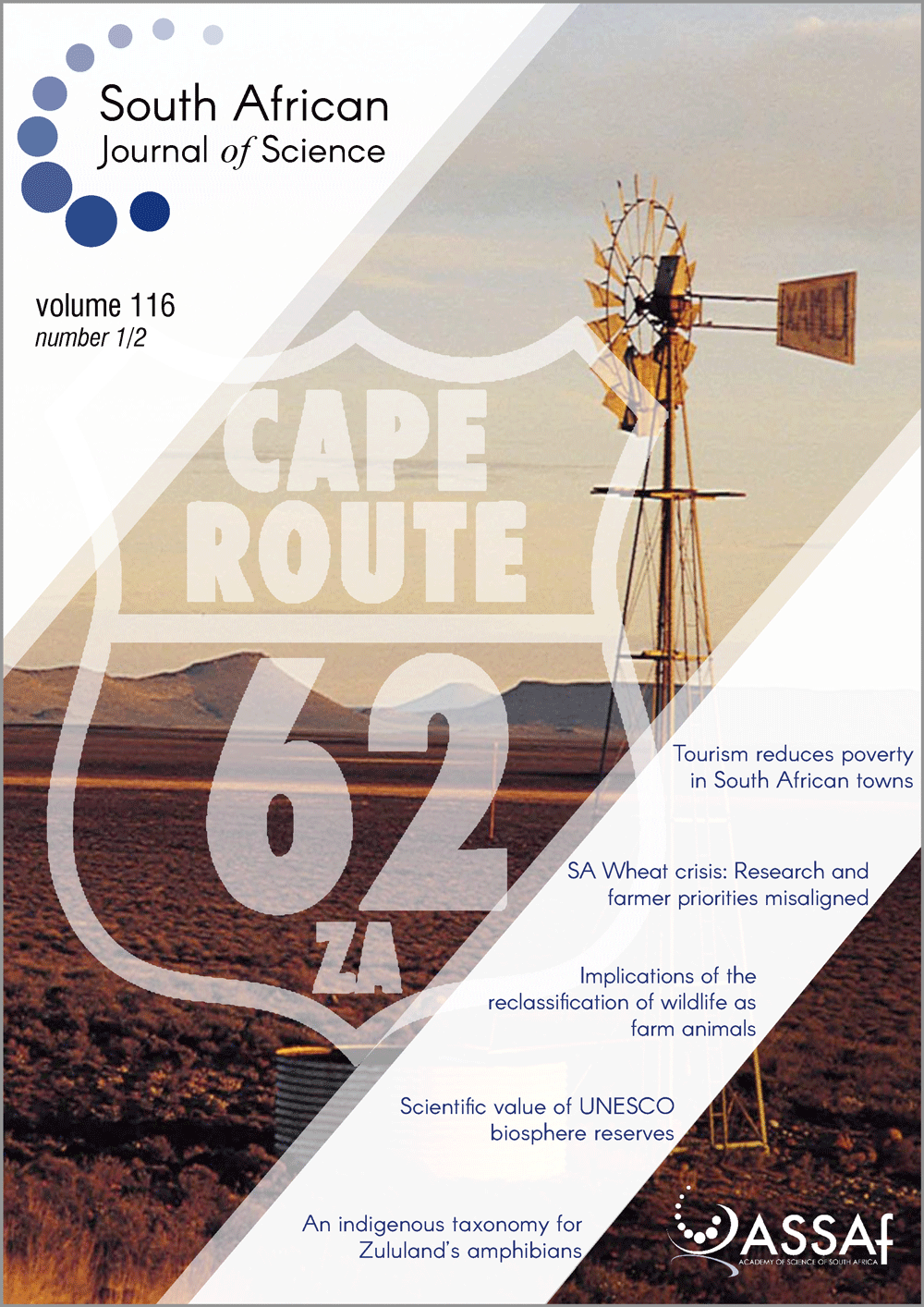A revised approach for estimating informally disposed domestic waste in rural versus urban South Africa and implications for waste management
DOI:
https://doi.org/10.17159/sajs.2020/5635Keywords:
informal disposal, dumping, service delivery, inequalityAbstract
A major limitation to improved waste management in South Africa lies in the paucity of reliable waste data and the exclusion of the contribution of the informal sector from reporting. Due to the disparity in the provision of formal waste management services across households in South Africa, omission of the quantified contribution of informal management practices leads to an inaccurate representation of waste management practices in existing waste data repositories. Given the potentially adverse social and environmental consequences of unregulated waste management practices, a lack of representation thereof has the potential to underestimate impacts. As of 2015, 31% of households are reported as lacking a basic refuse removal service; however, this number cannot necessarily be applied directly to waste quantities, given the regional and socio-economic differences that occur in per capita waste generation rates. The total quantity of domestic waste in South Africa and fraction disposed informally are estimated here, taking into account differences in waste generation rates based on income and settlement type. The characterisation and quantification of unregulated waste streams is beneficial in assessing the magnitude of the problem and, where necessary, identifying mitigation action. The results obtained show that 29% (3.67 million tonnes per annum) of domestic waste generated is not collected or treated via formal management options. Of this waste, the majority (85%) is generated in rural areas. The most common waste management option for unserviced households is a private dump. An estimated 94% of households in unserviced rural areas make use of private dumps, while in unserviced urban and metro areas this decreases to 74% and 71% of households, respectively. Illegal dumping is the next most common waste management option for unserviced areas. The proportion of household waste disposed of via illegal dumping ranges from an estimated 5% for unserviced rural households to 27% in metro areas with the balance made up by ‘other’ disposal/treatment options.
Significance:
- The proportion of domestic waste that is mismanaged in South Africa is significant and its exclusion from national waste estimates leads to the inaccurate representation of waste management practices in existing waste data repositories. Unregulated waste management practices can have potentially adverse social and environmental consequences, i.e. leakage into the environment, or if burnt, the generation of atmospheric pollutants.
- The quantity of mismanaged waste and distribution of this waste between different management options is important for the development of improved National Waste Management Plans.
Published
Issue
Section
License

All articles are published under a Creative Commons Attribution 4.0 International Licence
Copyright is retained by the authors. Readers are welcome to reproduce, share and adapt the content without permission provided the source is attributed.
Disclaimer: The publisher and editors accept no responsibility for statements made by the authors
How to Cite
- Abstract 3339
- PDF 2403
- EPUB 294
- XML 465













.png)